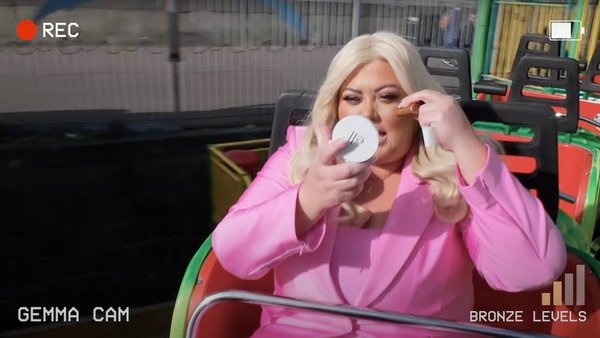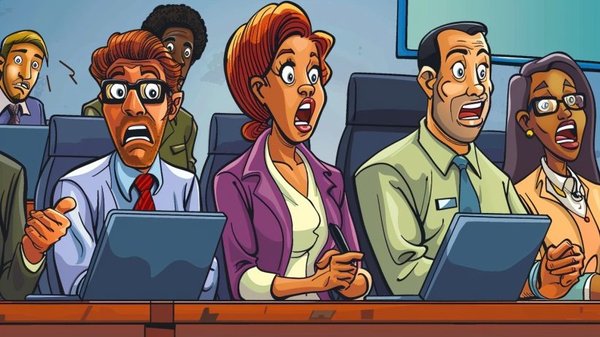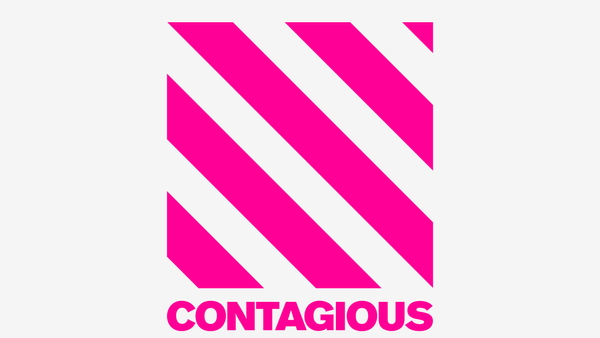Cannes Lions Pharma jury president on the winning work /
Collette Douaihy, global chief creative officer, health, Dentsu Health
Adam Richmond
/
At this year’s Cannes Lions International Festival of Creativity, healthcare service provider Siemens Healthineers won the Grand Prix in the Pharma category for its Magnetic Stories campaign.
Working with agency Area 23 (part of IPG Health Network), New York, the brand created an audiobook collection that children can listen to on headphones, incorporating the intimidating MRI noises into the story to create a more fun experience for younger patients. For instance, in one story, the jarring whirr of the MRI becomes the sound effect of a playful robot.
Contagious spoke with Pharma jury president Collette Douaihy, global chief creative officer, health, Dentsu Health about why Siemens Healthineers took the Grand Prix, judging process and what makes good Pharma.
Tell us about some of the marketing trends in the Pharma category the jury noticed this year.
Collette Douaihy: The first trend that came up was opening up the aperture of Pharma. And what we mean by that is that pharma [has been] very product-led – when you think about that aperture opening up, we’re allowing more inclusivity of the use of technology and innovation. The rise of product innovation has been happening for the last, I’d say, five years, with products that are changing how they look at diagnostics, changing the patient experience. So product innovation, besides just the pill, is helping to move the needle in Pharma because when you think about a patient journey and you think about everything that they’re going through, a pill is just one part of their journey. So the rise of product innovation in this category is super important because if you have a good patient experience, and you have good outcomes, that means that you’re on a good journey to help.
The rise of the customer experience was that other trend that happened. The Grand Prix, Magnetic Stories, was a perfect blend of that. You have humanity at the centre and you have amazing technology, you have beautiful storytelling and craft that goes into that. So when you think about a blend of all those things coming together, to truly innovate a piece of equipment that takes the fear away from a child — that’s a beautiful story in itself, right?
When we think of the Grand Prix and award-worthy work, the work has to be meticulously crafted, I think that’s what Magnetic Stories did. They didn’t just apply sound and these earphones to just drown something out. They made it part of the story. But they also use wonderful authors and sound engineers, technologists, to help navigate those stories together. So it was a very collaborative approach to make this happen.
What mistakes stop pharmaceutical brands making great work?
Mistake is a difficult word to use. [It’s more] how do you show the ordinary everyday in Pharma without looking ordinary? How do you make it extraordinary. So it’s not necessarily a mistake, it’s a call to arms for product-led Pharma to keep pushing and finding fresh new ways to tell their stories, and [not to] rely on what’s been done before, if they want breakthrough creative and to make a mark on the industry.
We’re a few years post-Covid — what do you think the impact are of that on the Pharma category?
I think we’re living in a world [where] experiences are so important. I’m not even talking about our industry. In general, people need to get out in the world again and connect with their families. There was a greater love for life post pandemic. We were sick of being locked down and time with family was very important. If you think about that, in the lens of what we went through as an industry experiences are so important.
And the Grand Prix is a perfect example, the one that won last year [Eurofarma’s Scrolling Therapy campaign], it’s taking an experience and giving it to someone who otherwise didn’t have something else to help them along the journey. So it really is about supporting them with all the tools, whether it be the pill or products or therapies, tips and tools and all that stuff. You have to think at every point of their journey. So that’s why I think the rise of the experience-led work is really important. We’re seeing a customer-centric focus like never before.
Tell us more about why the jury awarded Magnetic Stories with the Grand Prix?
This is such a simple idea. I’m not going to say it was simple to produce — a lot of work went into that. But just the ideas of thinking about a child who is scared going for an MRI, how do we make that experience better? It took a great team to think through every aspect of that machine in the sounds and how do you build that into the story for those exciting moments that the child is listening to? It was such a great example of storytelling at its best, so simple, but also very creative. We love to say at Dentsu ‘modern creativity’, and it’s very modern, it’s about fitting into where we are in the world today and how does creativity fit into to a patient or a customer’s life?
What does Magnetic Stories do for the Siemens? Why was it right for the brand?
[It says] first and foremost that they’re at the forefront of innovation as a healthcare company, that they are investing in programmes like this. It’s also a call to arms for other industries to do the same — how else do you get more of this done? So I think they’re leading the way, they’re setting the bar for the industry.
Siemens will roll this out into other markets, and make it the standard for children who are going through an MRI. That’s the most important thing, where else does it go from here? How else does it impact the rest of the world? Are we continuing to use it? Are we continuing to build on that technology and make it even better than it is today?
Generally, do you feel that the quality of pharma work has been improving in in the last few years?
It feels like it has and this year felt a little different than previous years. It felt like some of the pill-driven medication, device-injection work fell short a little bit, where product innovation and experienced-led work took the forefront again. I think it’s getting better because it’s not just looking at specific drugs and what they do, and just trying to get creative.
Want more Cannes Lions Insights? /
Contagious’ analysts and strategists spend their time at Cannes Lions interviewing jury presidents and attending seminars and press briefings, to find out what’s really going on.
Then, we use our two decades of experience to put those findings into perspective and analyse what they mean for marketing and the marketing industry.
Finally, we condense all those insights and case studies into an informative, insightful and (occasionally) entertaining 50-minute briefing (plus 10 minutes of Q&A) that we deliver to brands and agencies.
Book a Cannes Deconstructed briefing and you’ll learn:
- The strategies that underpin the big winners
- The jury perspective on what it took to win in 2024
- The trends that are shaping the most effective, influential work and what they mean for brands
- The brands and campaigns that are raising the bar for commercial creativity
To find out more, click here.
Want more of the same? /
We don’t just write about best-in-class campaigns, interviews and trends. Our Members also receive access to briefings, online training, webinars, live events and much more.




